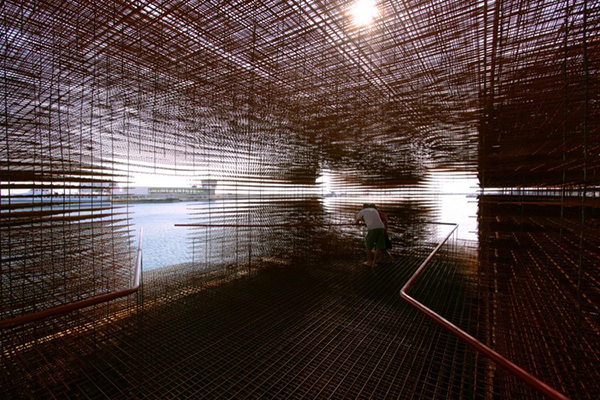Semperian digitally woven mythologies. On grids, warps, wefts and skins in the computer age
DOI:
https://doi.org/10.15168/xy.v4i8.163Keywords:
new materiality, Semper, textile tectonicsAbstract
The potential of grids to generate order in architecture is currently increased by advances in digital manufacturing processes and parametric design tools. Textile design as an example of the structural materialization of a grid has exerted a significant influence throughout the history of architecture. The fabric formed by the warp and the weft offers a suggestive metaphor to address some of the issues related to contemporary digital architecture. Through the hybridization of media facilitated by digital tools, textile tectonics are linked to the generative potential of digital architecture and the idea of new materiality through the discourse of digital variability. A confluence is established between architecture, engineering, materials science, art and textile design that responds to the new parameters of continuity, lightness, smoothness and fluidity. Advances in digital manufacturing allow us to rethink the relation between different traditional crafts and reinterpret trades to reinterpret their formal and constructive repertories. As contemporary new parametric Ariadnes or algorithmic Arachnes, experimentation proposals arise with the internal geometries of nature’s forms through the use of mathematics, generative systems and robotic manufacturing tools. This conceptual transference from natural systems to architecture finds in the textile a powerful metaphor of action integrating code, patterns, interactivity, geometry and materials. The recovery of the semperian idea of the connection between material, structure and construction, and its contemporary version enhanced by the possibilities of the digital era allow the development of a new materiality in which the textile as a reference for the digital opens the doors to a new tectonic repertoire


